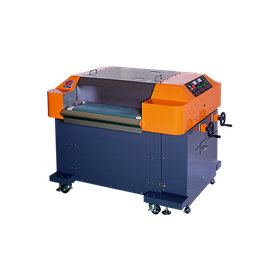Boiler tube continuous bending device
The boiler tube bending machine is a consistent system that performs continuous NC left and right bending processing of long boiler tubes by reading data input from the control panel after loading the tubes into the bending machine. For more details, please contact us or download the catalog.
Inquire About This Product
basic information
【Features】 ○ Continuous bending device for boiler tubes ○ Continuous bending processing of long boiler tubes with NC left and right bending ○ A consistent system that stocks a certain amount of products → Reads data inputted into the control panel from the loading to the bender main unit 【Specifications】 [Tube Specifications] ○ Tube Material → STB, ATBA, AUSTENITE series steel pipes, carbon steel pipes, heat-resistant low-alloy steel pipes ○ Tube Size → Outer diameter: φ22.2 to φ69.85mm → Wall thickness: t 2.6 to t 9.0mm → Length: 9,000 to 50,000mm → Tolerance: Outer diameter +0.4mm -0.8mm, Wall thickness ±0.25mm, Welded section Outer diameter +4mm [Electrical Specifications] ○ Number of control axes: 5 axes → Feed, left bending, right bending, lateral movement, boost speed ○ Command units → Feed amount 0.1mm, bending angle 0.1°, speed percentage every 5%, pressure 0.51MPa ○ Power supply: AC 440V ±10% → AC control circuit: AC 100V ±10% → DC control circuit: DC 24V ±2% ● For more details, please contact us or download the catalog.
Price information
Please contact us.
Delivery Time
※Please contact us.
Applications/Examples of results
For more details, please contact us or download the catalog.
catalog(1)
Download All CatalogsCompany information
Our company, a top manufacturer of hydroforming machines, CNC pipe benders, and pressure testing machines, aims to stay ahead of the times by leveraging our rich experience and achievements in hydraulic technology to develop new products. We are a "potential company" that advances into the new century with a collection of reliable and future-oriented technological innovations. Our environmentally friendly water-based technologies significantly contribute to the labor-saving, upgrading, and safety improvements across various industries.









![Deburring Machine "Twin Baritor" [Eligible for Small and Medium Enterprise Productivity Investment Subsidy]](https://image.mono.ipros.com/public/product/image/6d3/2000308654/IPROS16685940644635288329.png?w=280&h=280)


